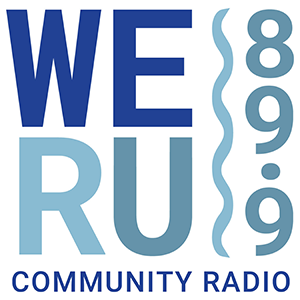Producers/Hosts: Maria Girouard, Esther Anne
Jeffrey Hotchkiss, Zoom recording technician
Dawnland Signals highlights indigenous topics not immediately represented in mainstream media and is meant to share, inspire, and inform. Join co-hosts Maria Girouard and Esther Anne as they engage in critical conversations of truth, healing, and change in the Dawnland.
This month:
This month’s show features Dr. Meadow Dibble, Director of Community-Engaged Research at the Permanent Commission on the Status of Racial, Indigenous, and Tribal Populations and founder of Atlantic Black Box.
Dr. Dibble will share with us the work surrounding LD 1591, the law to identify and remove offensive place names in Maine and how each of us can be involved.
– Life experience as a white person discovering her New England family profited from the slave trade
– Project to identify and change remaining offensive place names in Maine
– How does the name of a place reveal or obscure its real human history?
Guest/s:
Dr. Meadow Dibble, Director of Community-Engaged Research at the Permanent Commission on the Status of Racial, Indigenous, and Tribal Populations and founder of Atlantic Black Box. Contact: [email protected]
Links FMI:
Links:
LD 1591 Report to the Maine Legislature – “RESOLVE, DIRECTING THE DEPARTMENT OF AGRICULTURE, CONSERVATION AND FORESTRY TO IDENTIFY PLACES WITH OFFENSIVE NAMES AND METHODS OF CHANGING THOSE NAMES”:
LD 1934 – “Resolve, Changing the Identifying and Reporting Responsibilities and Extending the Reporting Deadline for the Identification of Places in the State with Offensive Names”:
About the hosts:
Esther Anne, is a Passamaquoddy from Sipayik who lives on Indian Island and serves on the Wabanaki REACH Board of Directors.
Maria Girouard, Penobscot from Indian Island, is Executive Director of Wabanaki REACH, a statewide organization working toward truth, healing, and change in the Dawnland. Maria is a tribal historian with a Master’s Degree in History from the University of Maine and a special interest in the Maine Indian Land Claims. Maria has devoted years to community organizing, environmental stewardship and activism, and growing food in tribal communities.
Podcast: Play in new window | Download



 Donate to WERU Today!
Donate to WERU Today!